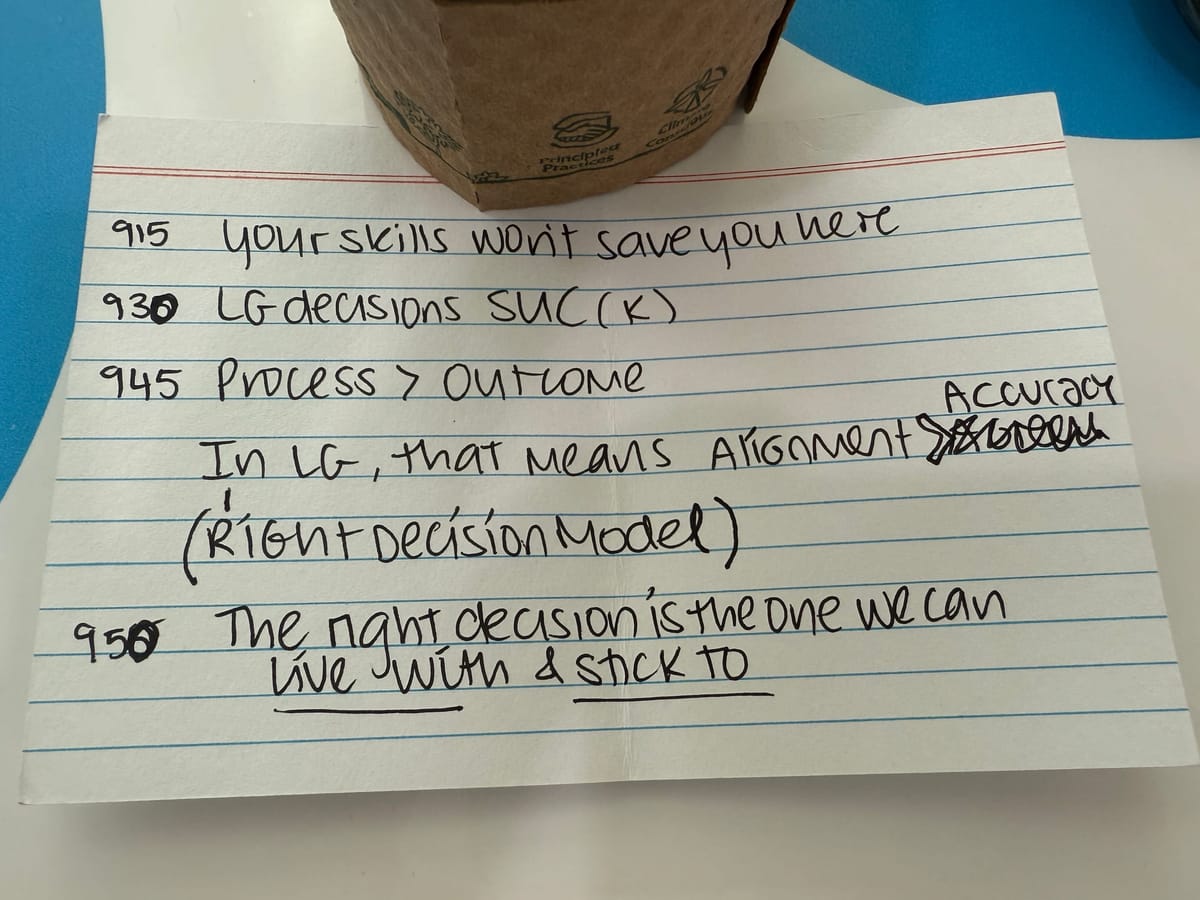A petition just appeared in my inbox, demanding New Zealand’s Prime Minister take action on political disinformation. The sender is Tory Whanau, Mayor of Wellington until just a few weeks ago. Whanau is using her freedom to speak truth to power.
For as author William S. Burroughs wisely notes:
“The more power, the less freedom”
Politicians and senior officials enjoy three strategic levers: rules, resources, and relationships.
- Rules are about policy and process. Rules shape incentives and behaviour.
- Resources are about time, money and people. Resource allocation determines priorities.
- Relationships open new doors through collaboration and communication. Relationships turn ideas into action.
These are powerful levers, unavailable to the average bear. I spend much of my time helping leaders learn to use them - instead of getting trapped in the short-term operational stuff. But none of these things come for free. Each lever has a price-tag - rules: responsibility; resources: return; relationships: reciprocity.
🏷️ The price of rules is responsibility
If you make the rules, you become responsible for their consequences. When you tighten welfare eligibility or relax planning requirements, you affect a complex system. Your welfare changes might increase the incentive for training and employment - or they might lead to spike in youth crime. Relaxing planning requirements might accelerate development and grow a district’s population - or it might destroy the environment and make an area uninhabitable.
The risk of perverse or unintended consequences rises with three things:
1) the complexity of the system
2) the uncertainty of the future
3) the distance of the rulemaker from the rule’s impacts (see Sidney Yoshida’s Iceberg of Ignorance.)

🏷️ The price of resources is return
If you decide how the money is spent, you’re on the hook for the return. Your funders (taxpayers, supporters, partners) expect something for their spend - and their patience often wears thin before the payoff period.
“There is an absence of institutional mechanisms that give voice to the interests of tomorrow’s generations, who are effectively disenfranchised from the system. Politics enables the colonisation of the future.”
– Roman Krznaric
This pressure favours projects and policies with short-term results (preferably before the next election), making progress on long-term problems tricky. China is blitzing the West in the green transition for a reason.
🏷️ The price of relationships is reciprocity
Relationships are two-sided - at least, if you want to keep them. Keeping campaign promises once you’re in office is tricky, but supporters aren’t concerned about official advice or your shared political vision - they just want you to hold up your end of the bargain.
Some relationships are delightfully transactional - alliance partnerships with agreed compensation, grants with strings attached. You will be forgiven these. Others, not so much. You want to improve abortion access, but stay quiet because of the church who hosted your election fundraiser. You vote to clean up the stream, then the farmers who swung the ward in your favour pull their backing in the next election. Loyalty is a cost, especially in a small country or community.
Maybe these are all small, practical concessions to stay in office - you aren’t much good if you’re voted out, after all. Maybe it’s democracy in action.
Either way, power comes at a price. Freedom does too.
Til next week,
AM











